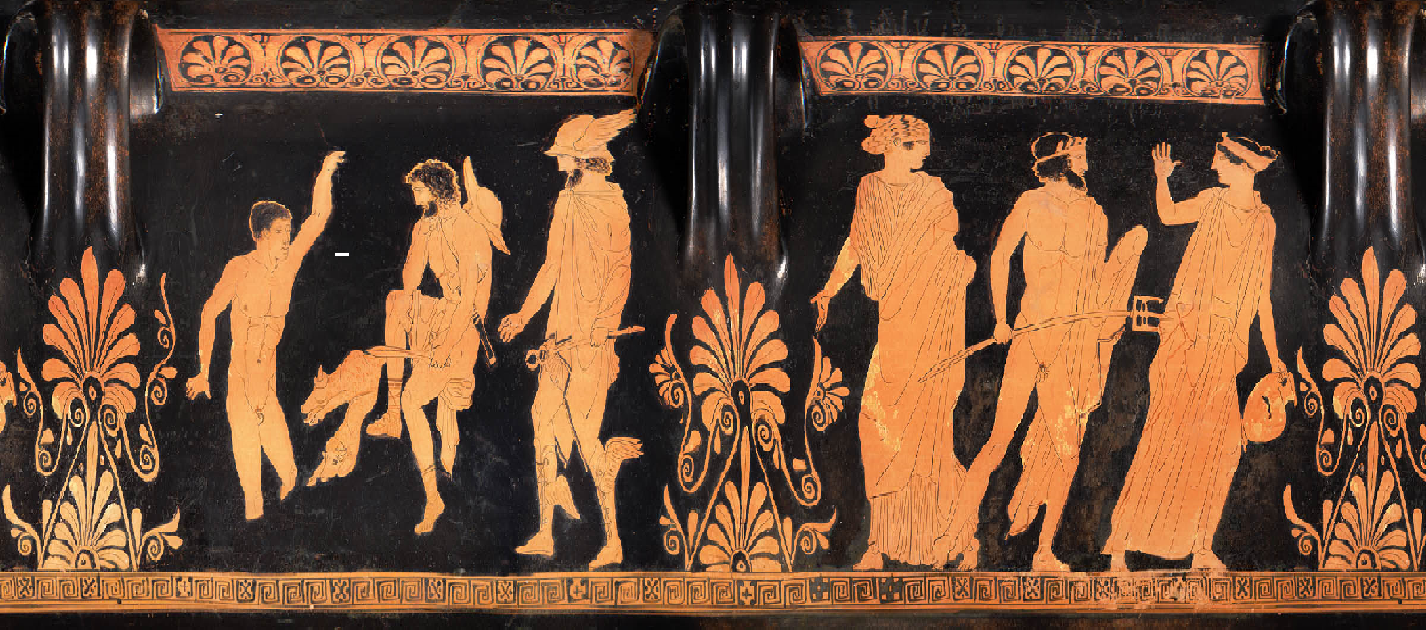
Одиссей. Человек в истории. 2021: Социальные категории и их интерпретация на языке метафор (стр. 201-217) | Соколов Олег Александрович
В статье рассматриваются произведения крупнейших арабских деятелей искусства XIX – начала XX вв., поэта Ахмада Шауки и романиста Джирджи Зейдана, содержащие отсылки к эпохе Крестовых походов. Анализ творчества этих авторов показывает, что вопреки сложившемуся в современной историографии представлению о том арабские деятели искусства стали активно обращаться к эпохе Крестовых походов лишь во второй половине XX в., уже в арабской поэзии и прозе XIX в. обнаруживаются многочисленные отсылки к этой эпохе. Ахмад Шауки в своих стихах представляет Крестовые походы как время славных побед мусульман, которые должны вдохновить современников на противостояние европейцам. При этом в качестве примеров идеальных военачальников предстают как известные европейцам мусульманские военачальники, так и египетский флотоводец Хусам ад-Дин Лулу, спаситель Мекки и Медины от крестоносцев, герой арабской народной традиции. Для произведений Джирджи Зейдана также характерен романтический взгляд на Крестовые походы. Писатель изображает эту эпоху как время благородных правителей, таких, как Салах ад-Дин и Ричард Львиное Сердце, способных на равных решать судьбу Ближнего Востока.
The article examines the works of the greatest Arab artists of the 19th and early 20th centuries, the poet Ahmad Shawqi and the novelist Jirji Zeydan, containing references to the era of the Crusades. An analysis of the work of these authors shows that, contrary to the view prevailing in modern historiography, that Arab artists began to actively refer to the Crusades era only in the second half of the 20th century, already in the Arab poetry and prose of the 19th century, numerous references to this era are found. Ahmad Shawki in his poems presents the Crusades as a time of glorious victories of Muslims, which should inspire contemporaries to fight Europeans. In his works both Muslim commanders known to Europeans and the Egyptian naval commander Husam al-Din Lulu, the savior of Mecca and Medina from the crusaders, the hero of the Arab folk tradition, appear as examples of ideal military leaders. Jirji Zeidan's writings are also characterized by a romantic view of the Crusades. The writer portrays this era as the time of noble rulers, such as Salah ad-Din and Richard the Lionheart, who were able to decide the fate of the Middle East on equal terms.
Библиография
ИСТОЧНИКИ
Зайда̄н Джирджӣ. Сала̄х ад-дӣн ва мака̄’ид ал-хаша̄шӣн. Ал-Ка̄хира, 2012.
Зайда̄н Джирджӣ. Та’рӣх миср ал-хадӣс ма‘ фазлака фӣ та’рӣх миср ал-кадӣм. Ал-Ка̄хира, 2012. Т. 1–2.
Зайда̄н Джирджи. Шаджарат ад-дурр. Ал-Ка̄хира, 2012.
Шаукӣ Ахмад. Аш-Шаукиййа̄т. Ал-Ка̄хира, 2012.
ЛИТЕРАТУРА
Али-Заде Э.А. История литературы Сирии XIX–XX веков. М., 2007.
Долинина А.А. Очерки истории арабской литературы Нового времени. Египет и Сирия. Публицистика 1870–1914 гг. М., 1968.
Лучицкая С.И. Образ другого: мусульмане в хрониках крестовых походов. СПб., 2001.
Соколов О.А. Тюрки в современной арабской историографии Крестовых походов // Ислам в современном мире. 2017. Т. 13. № 2. С. 175–186.
Родионов М.А. Культурная память и мерная речь на Юге Аравии: Хадрамаут. СПб., 2014.
Хилленбранд К. Крестовые походы. Взгляд с Востока: мусульманская перспектива. Пер. с англ. А. Матвеев, А. Федоровский. М.; СПб., 2008.
Asbridge T.S. The Crusades: the authoritative history of the war for the Holy Land. New York, 2011.
Badawi M.M. A Critical Introduction to Modern Arabic Poetry. Cambridge, 1975.
Ende W. Wer ist ein Glaubensheld, wer ist ein Ketzer? Konkurrierende Geschichtsbilder in dermodernen Literatur islamischer Länder // Die Welt des Islams. 1984. № 23/24. P. 70–94.
Gerber H. Remembering and Imagining Palestine: Identity and Nationalism from the Crusades to the Present. L., 2008.
Hillendrand C. Jihad Poetry in the Age of the Crusades // Crusades – Medieval Worlds in Conflict. London, 2010;
Hourani A. Arabic Thought in the Liberal Age, 1798–1939. Cambridge, 1983.
Kadhim H.N. Poetics of Anti-Colonialism in the Arabic Qasidah. Brill Studies in Middle Eastern Literatures. Leiden, 2004.
Latiff O. The Cutting Edge of the Poet’s Sword: Muslim Poetic Responses to the Crusades. Leiden, 2017.
Lewis B. The Crisis of Islam: Holy War and Unholy Terror. New York, 2003.
Mohring H., Cobb P.M. Saladin: The Sultan and His Times. 1138–1193. Tr. D.S. Bachrach. Baltimore, 2008.
Phillips J. The Image of Saladin: From the Medieval to the Modern Age. European Receptions of the Crusades in the Nineteenth Century. Franco-German Perspectives. International Workshop – Research Group ‘Myths of the Crusades’. Eckert. Dossiers 4. 2011. P. 5. URL: https://repository.gei.de/bitstream/handle/11428/ 129/ED_2011_04_06_Phillips_Reputation_of_Saladin.pdf (дата обращения: 14.05.2019).
Phillips J. Before the Kaiser: The Memory of Saladin and the Crusades in the Near East from the Fifteenth to the Nineteenth Centuries. Royal Holloway, University of London, 2013. P. 3. URL: https://pure.royalholloway.ac.uk/portal/files/17993420/ phillips_before_the_kaiser_10.11.13.pdf (дата обращения: 17.06.2019).
Phillips J. ‘Unity! Unity between all the inhabitants of our lands!’: the memory and legacy of the crusades and Saladin in the Near East, c.1880 to c.1925 // Perceptions of the Crusades from the Nineteenth to the Twenty-First Century, Volume One. L., 2018.
Phillips J. The Life and Legend of the Sultan Saladin. New Haven, 2019.
Riley-Smith J.S.C. The Crusades: A History. New Haven, 2005.
Riley-Smith J.S.C. The Crusades, Christianity and Islam. New York, 2008.
Runciman S. A History of the Crusades. Vol. II: The Kingdom of Jerusalem and the Frankish East, 1100–1187. Cambridge, 1987.
Sayfo O. From Kurdish Sultan to Pan-Arab Champion and Muslim Hero: The Evolution of the Saladin Myth in Popular Arab Culture // The Journal of Popular Culture. 2017. № 50. P. 65–85.
Sivan E. Modern Arab Historiography of the Crusades. Tel-Aviv, 1973.
Somekh S. The Neo-classical Arabic poets // Modern Arabic Literature. The Cambridge History of Arabic Literature. Cambridge, 1993.